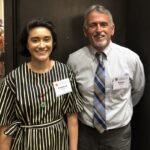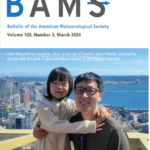
ESSIC/CISESS Scientist Jacqueline De La Cour was a contributor to and reviewer of The Sixth Status of Coral Reefs of the World: 2020 Report, released by the Global Coral Reef Monitoring Network (GCRMN) on October 5, 2021. This sixth edition is the first since 2008 and is the largest quantitative analysis of global coral reef health ever undertaken. More than 300 contributors provided data, comprising almost 2 million observations from more than 12,000 sites in 73 countries.
Key findings of this massive effort include: (1) large scale coral bleaching events are the greatest disturbance to coral reef ecosystems globally; (2) the world lost 11,700 square kilometers (about 14%) of the coral on its reefs between 2009 and 2018; (3) reef algae, which grow during periods of stress, increased by 20 percent; and (4) sharp declines in coral cover almost invariably corresponded with rising sea surface temperatures. The Executive Summary, Global Analysis, and Regional Chapters for the 10 GCRMN regions (i.e., Australia, Caribbean, Brazil, East Asian Seas, Eastern Tropical Pacific, Pacific, South Asia, Western Indian Ocean, Red Sea and Gulf of Aden, and the Regional Organization for the Protection of the Marine Environment (ROPME) Sea Area [which includes The Gulf and the Gulf of Oman]) are available for download at https://gcrmn.net/2020-report/.
Jacqueline De La Cour is a coral biologist specializing in the study of coastal ecosystems, especially coral reefs, and the processes and impacts influencing those. Since June 2010, she has been serving as the Operations Manager for the Coral Reef Watch program at the U.S. National Oceanic and Atmospheric Administration (NOAA). In June 2018, Jacqueline joined the University of Maryland’s Earth System Science Interdisciplinary Center as a Senior Faculty Specialist. Jacqueline directs the operations of the multi-million dollar Coral Reef Watch program with staff in the United States and Australia; writes proposals to support staff and program activities; develops and oversees the program’s annual operating budget; leads strategic planning; coordinates domestic and international partnerships, contracts, and cooperative agreements; conducts product and web page development and scientific analyses; and leads program-wide education and outreach efforts, among other tasks.
To access the report, click here: “The Sixth Status of Corals of the World: 2020 Report”.






